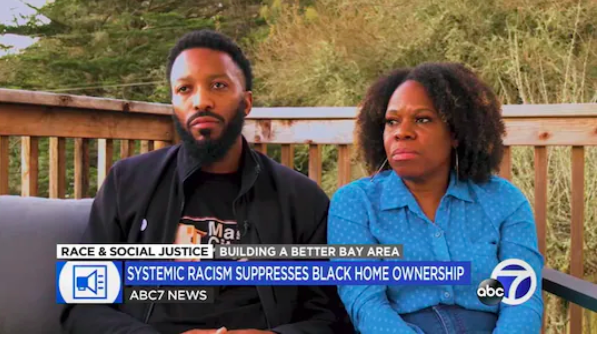In December 2021, Tenisha Tate-Austin and her husband, Paul Austin, filed a discrimination lawsuit after a white appraiser valued the Black couple’s California home much lower than they had anticipated. Then, following a second appraisal when a white friend showed the couple’s home as her own, the appraisal rose $500,000, giving their home a value of more than $1.4 million.

The Austins’ experience is but one of many Black homeowners have had for decades. But now the couple’s lawsuit against a home appraisal company has caught the attention of the Department of Justice.
The DOJ has filed a statement of interest in the couple’s claim that the first appraiser of their Marin County home violated the Fair Housing Act (FHA), CNN reported.
In a statement issued on Feb. 21 the DOJ’s Civil Rights Division said that “combating housing discrimination, including bias in appraisals, is a high priority across the federal government.”
The interest in the Austins’ case “directly addresses President Biden’s order to appraisal agencies to advance equity for all people, especially marginalized groups with a deep history of racial discrimination in the housing market,” according to the statement.
Homes in Black neighborhoods are undervalued by about $46,000, found a Redfin analysis in 2021.
“Although a number of similar situations have been reported by the media, there are few filed cases that include these types of claims under the FHA,” Aryele Bradford, a DOJ spokeswoman, told CNN in an email statement.
According to the DOJ’s statement of interest, the civil rights division wants to “provide an overview of the FHA” to address the two issues in the couple’s lawsuit.
Issue one: The first white appraiser claimed the FHA does not apply to residential appraisers. Issue two: The defendant also claims the couple failed to prove sufficient evidence of racial discrimination in the appraisal.
“Researchers have consistently shown the ways in which Black and other homeowners of color experience bias and discrimination in housing and credit markets,” Carolina Reid, a faculty research adviser for the Terner Center for Housing Innovation based at the University of California at Berkeley, told CNN.
Read more stories like this:
New California Law Tackles ‘Redlining 2.0’ to End Anti-Black Bias In the Home Appraisal Process




